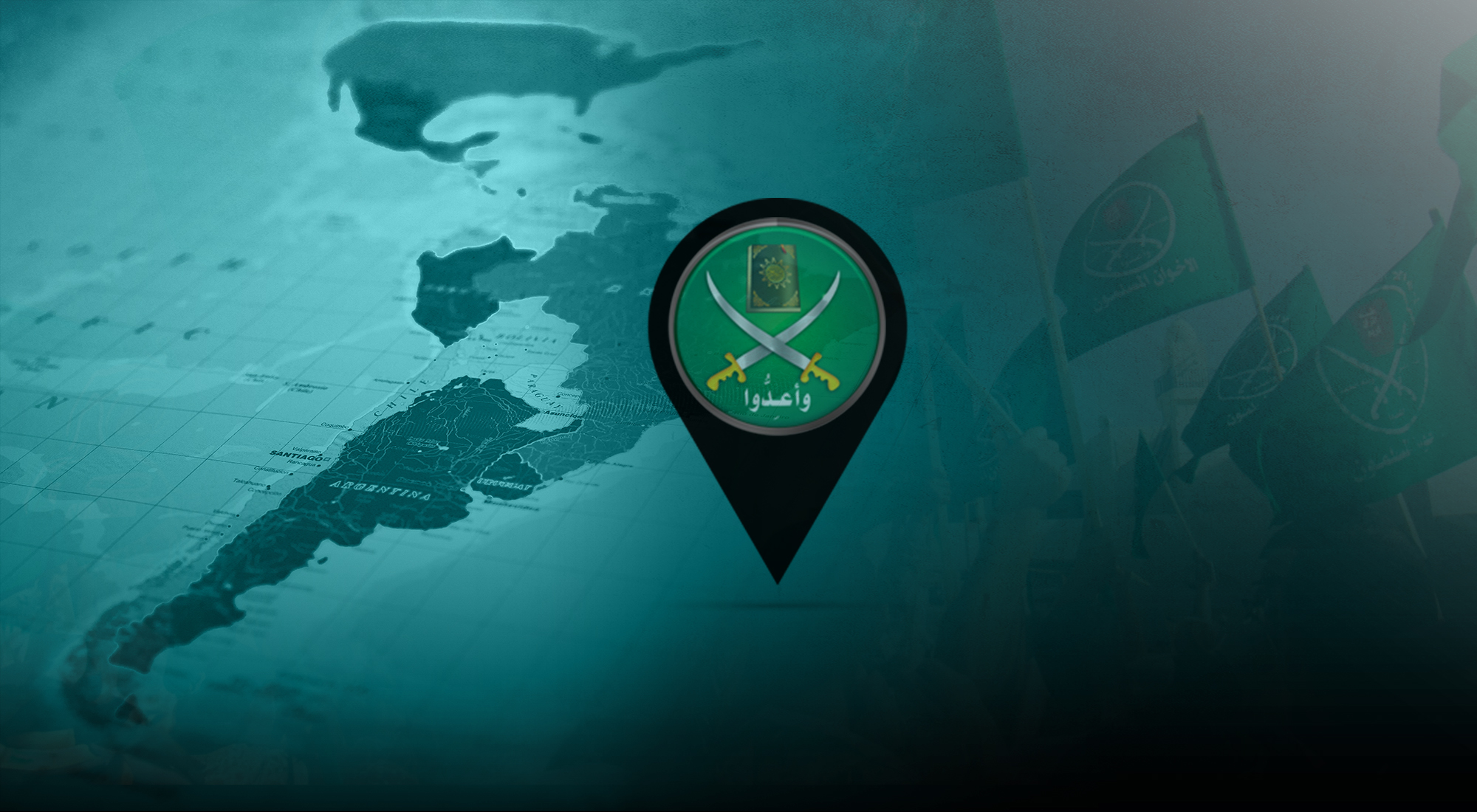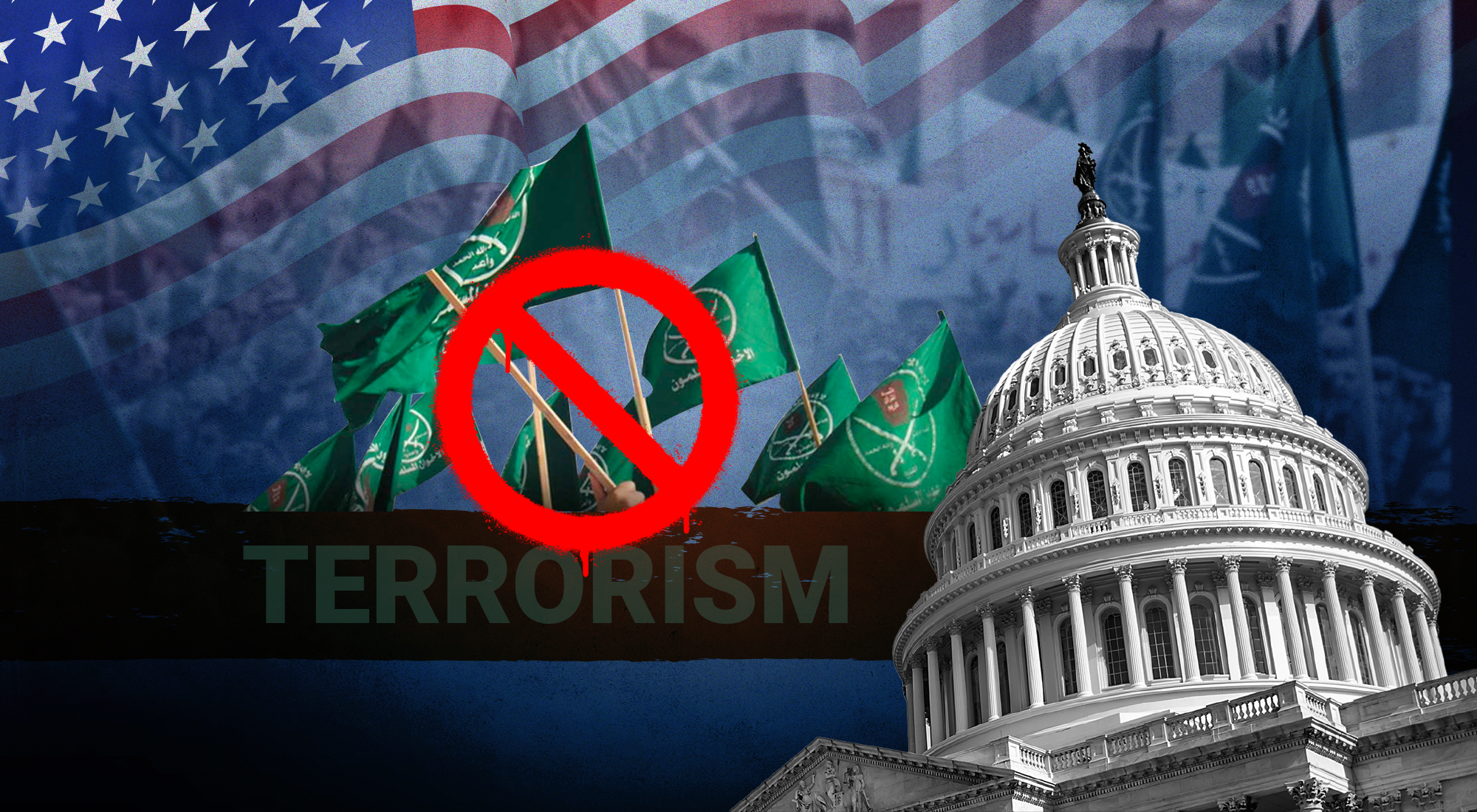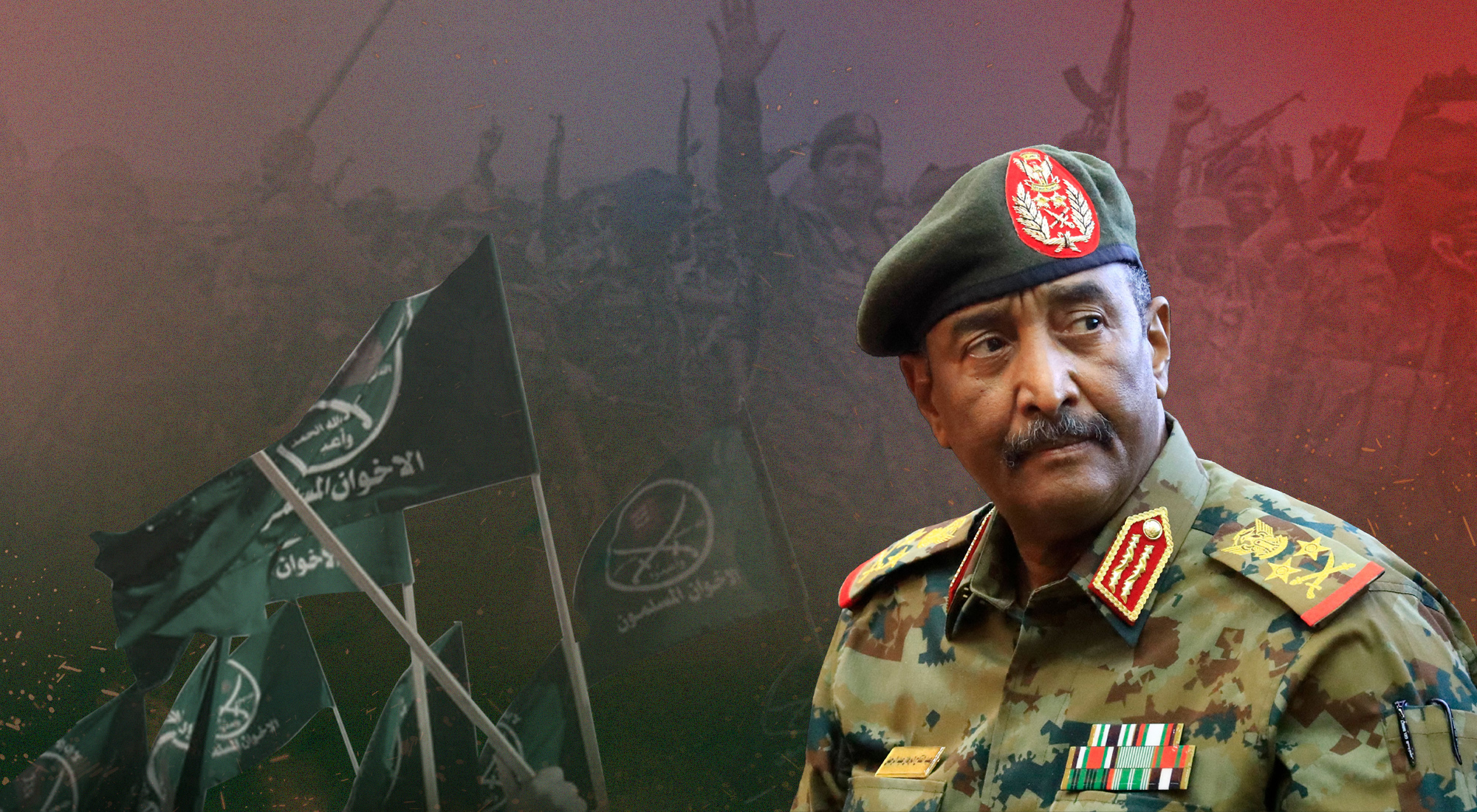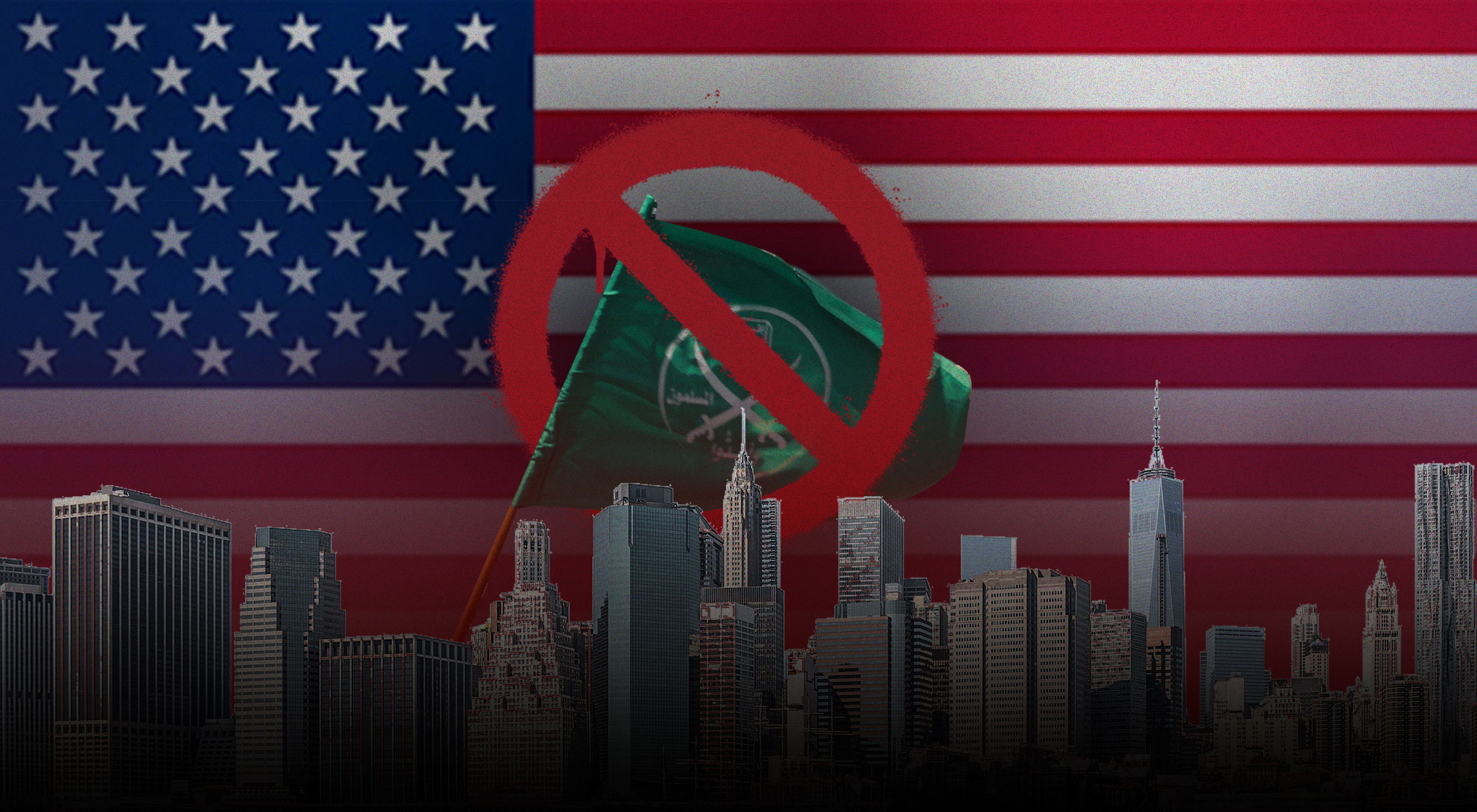Introduction
Political Islamist movements generally share a common feature – manipulating political crises to serve their interests and objectives. Such manipulation becomes evident in their constant endeavor to capture power or provoke people against ruling regimes. They try to distort these regimes’ image in the people’s eyes and try to infiltrate into society and build a base, especially among poor and marginalized sections of society. Muslim Brotherhood has been at the forefront of movements that have manipulated political, economic, or humanitarian crises to their advantage. The organization does this to gain leverage and enhance its influence in society.
The Covid-19 pandemic has exposed the opportunism of the Brotherhood for political purposes as the group has put its interests over other considerations. Despite the pandemic being a humanitarian crisis, which has required global cooperation, the Brotherhood exploited the crisis and continues to do so to distort the Egyptian government’s image. The Brotherhood accuses the government of being inefficient and incapable of managing the pandemic. Many Brotherhood-affiliated organizations in other Arab countries, particularly those hit by the crisis, have not responded to the international calls demanding an end to the violent struggles to focus on the pandemic. Groups affiliated to the Brotherhood in Yemen and Libya continued their efforts to pursue their vested interests.
This paper discusses the Brotherhood’s method of manipulating crises, especially in the wake of the Covid-19 pandemic. It reveals how the Brotherhood exploited the crisis at the political, social, and security levels, not only in Egypt but in many other countries.
A steady tactic during crises
Recent decades have shown that the Muslim Brotherhood often seeks to exploit any emerging crisis. For the group, any crisis is an opportunity to enhance political gains irrespective of whether the opportunity arises in or outside the country. This has been the Brotherhood approach since its inception in 1928. Within the first few years of its launch, the group succeeded in exploiting the open territories Egypt presented and enhanced its influence within the society. It infiltrated various segments of society and raised popular slogans such as redistribution of wealth and social justice. Those slogans were welcomed by society as it was suffering from miserable living conditions due to the British occupation of Egypt.
Moreover, the group exploited the freedom allowed during the reigns of late presidents Anwar al-Sadat and Hosni Mubarak (during his first term). It used the opportunity to enhance its presence inside the country and abroad by setting up the Brotherhood branches in several countries. This expansion enabled an international platform for the group, and, in July 1982, it announced International Organization of the Muslim Brotherhood, with support from regional and international parties.[1]
The group exploited the freedom in European countries to spread its tentacles in the continent. They formed pressure groups to defend the group and promote it as an alternative capable of replacing the regimes in Arab countries, especially in the wake of the so-called Arab Spring in late 2010. The Brotherhood viewed this as a golden opportunity to achieve its dream of capturing power.
The Brotherhood came to the forefront of January 25 revolution in Egypt. Although the group was reluctant to participate in the process in the beginning, when they realized it was succeeding in toppling the government, they attempted to lead the popular demands. The group achieved its objective when late President Mubarak gave up power in February 2011. The group took part in parliamentary and presidential elections in 2012 and captured power exploiting all the political opportunities that emerged during that period. However, the Brotherhood failed to rule the country when it got the chance, from June 2012 to June 2013. The failure was indisputable proof that the group neither had the tools nor the capabilities needed to govern the country.
These historical developments indicate that the Brotherhood sought to exploit crises to magnify their political gains, even if that would threaten nations’ security and stability. They have perfected this art even though it contradicts the political and religious slogans the group raises. The following example exposes the ambivalence and the political schizophrenia characterizing the group. The Brotherhood used to be a harsh critic of any deal with the International Monetary Fund (IMF) during the reign of the late president Hosni Mubarak.
However, after the January 25th revolution, it did everything possible to get loans from the IMF as the tourism revenue declined, foreign investments stopped, and increased demand by some economy segments increased expenditures.[2] A study conducted to analyze the Brotherhood’s year in power in Egypt says the group adopted acute neo-liberal market policies. The policy was the cornerstone of its economic agenda and probably was one reason that caused its failure to handle public resentment against miserable economic and social conditions. These policies’ miserable living conditions fueled the Egyptian people’s grievance against the Brotherhood rule on June 30, 2013.[3]
The political opportunity
Since World War II, the Covid-19 pandemic is regarded as one of the most perilous human crises, considering the daily rise in the number of victims. The grim struggle against the virus requires a humanitarian, political approach to unite the people and resources to focus on confronting the pandemic. However, the Brotherhood has exploited the pandemic as a tool to incite a struggle against Egypt’s ruling regime. The group has worked at several levels, and its efforts can be summed up in three broad ways:
- Religionization of the pandemic: The Muslim Brotherhood considered the pandemic a kind of punishment inflicted by God on the Egyptian people, who supported the revolution on June 30, 2013, against its rule. Some accounts on social media platforms affiliated with the Brotherhood promoted such ideas.[4] According to the House of Fatwa (Religious Rulings), 55 percent of Brotherhood fatwas (religious edicts) regarding Covid-19 revolved around the idea of divine punishment. Among those fatwas, one issued by Wajdi Ghonaim said: “Corona … is the revenge by God against China and a test for Muslims.”[5] Meanwhile, the group worked hard to politicize the Egyptian government’s decisions related to mosques’ closure. This was a preventive measure adopted by most countries worldwide. Nevertheless, the Brotherhood exploited this issue to distort the government’s image, taking advantage of the Egyptian people’s inherent religiosity. They politicized the closure of mosques as the mosques represent symbolic and spiritual value for the Egyptians. They politicized the issue of the closure of mosques as the mosques represent symbolic and spiritual value for the Egyptians. The Brotherhood, and its media arms, portrayed the decision to close mosques as a conspiracy against Islam. Such decisions have been taken during difficult circumstances throughout Islamic history to protect human lives. The decision to close down mosques was approved by religious leaders and had the approval of top institutions, including Al-Azhar. As massive gatherings could have spread the virus dangerously, the decision was a precautionary measure to protect people’s lives.[6]
The Brotherhood’s attempt to religionize Covid-19 is not different from the maneuvers of other extremist and terrorist groups, such as ISIS and Al-Qaeda. These groups tried to give the pandemic religious justifications that serve their interests. For example, ISIS also described the Covid-19 outbreak as a “punishment from God.” Al-Qaeda gave the pandemic a religious interpretation and released a document forwarded to its cadres worldwide. The document even claimed that coronavirus “hates non-believers. The objective behind the document was to gain sympathy among Muslims and recruit more supporters.[7]
- Creating doubt over government measures: The Brotherhood has also created doubt over government measures implemented to confront the Covid-19 pandemic. It has gone to the extent of provoking people to go against government decisions. The group tried to create resentment among citizens to ensure the Brotherhood’s return to the political landscape.[8] Simultaneously, it spared no effort in provoking those infected to spread the virus among police officers and army soldiers. Bahjat Saber, a member of the Muslim Brotherhood, urged every citizen infected with the virus to shake hands with members of the army, police, media, and the judiciary. The idea was to wreak havoc among the members of these institutions and disrupt their performance.[9] The group also worked hard to spread rumors to create panic among the Egyptian people. They repeatedly tried to distort the government’s image and criticized the measures taken to contain the virus. [10]
- Criticizing the WHO: Muslim Brotherhood also accused the World Health Organization of colluding with the Egyptian government just because the world body had praised the Egyptian government’s performance in handling the pandemic. The Brotherhood Media Center in London riled against WHO and dubbed the Covid-19 data on Egypt released by WHO as false and misleading. The Media Center claimed that the real number of infected people in Egypt are much higher. It published a letter addressed to the UN Secretary-General, Antonio Guterres, to his deputy, President of the Human Rights Council, and the UN High Commissioner for Human Rights. The letter demanded UN intervention in Egypt, claiming that “the problem is much bigger than what is depicted by the WHO data”[11].
Crisis in the Arab countries
The Brotherhood’s manipulation of the Covid-19 pandemic was not limited to opposing the ruling regime in Egypt. Some of its branches in many Arab countries tried to exploit the tough economic and social conditions, such as growing unemployment and the rising poverty rates. The Brotherhood’s main purpose was to register its presence and infiltrate the society by assisting its marginalized sections and the affected by the pandemic.
In Morocco, for example, the Justice and Development Party (which is the political arm of the Muslim Brotherhood) organized a campaign to distribute food in some districts, particularly the poor ones. That campaign was accompanied by political propaganda to promote the party and its objectives. In Mauritania, the National Congregation for Reform and Development Party (Tawasul), which represents the Brotherhood, organized a campaign to distribute vast quantities of food supplies in the capital city and other states as part of political propaganda for the party and its activities.[12] Exploiting these challenging economic and social conditions by the Brotherhood affiliates as part of its long-term tactic to expand and infiltrate within societies. This has been going on since the group’s inception in Egypt in 1928.
Another political manipulation model of Covid-19 unfolded in the Brotherhood’s Algerian unit, which raised suspicion over the government’s handling of the crisis. Abdullah Jab Allah, the head of Justice and Development Front (the party that represents the Brotherhood), criticized the banning of Friday prayers. He said that the mosque closure due to the Covid outbreak needed a thoughtful view. He wrote on his Facebook page: “We live in an era where people are prevented from following the rule of God, referring to the Shariah, and the divine Hakimiyyah of the Brotherhood. They waged wars against Shariah and keeps it away from people’s lives.”[13] This behavior is similar to the Brotherhood’s attitude in Egypt, which is to try and politicize government decisions during the Covid-19 outbreak.
These examples suggest that the Brotherhood has exploited the Covid-19 pandemic to spread its tentacles in the society and enhance its influence. Furthermore, the group tried to politicize some of the measures designed to contain the pandemic. Some organizations affiliated with the brotherhood also employed the pandemic as a tool for struggle, especially in the countries battling conflicts in the Arab world, such as Libya. Some Brotherhood voices expressed the hope that the coronavirus outbreak happens in areas controlled by the Libyan National Army.[14] Such behavior was devoid of any sense of humanity and morality. To make things worse, the Justice and Development Party (which represents the Brotherhood in Libya) refused to give up weapons. The party saw the world’s preoccupation with the pandemic as an opportunity to enhance the influence of the Brotherhood-affiliated militias fighting on the ground.
The Libyan Brotherhood Mufti, Al-Sadeq Al-Gheryani, who was removed from his position and resides in Turkey, incited people more than once to carry weapons. He criticized the government for allocating a special budget in the fight against the virus. He said he wanted these funds to be spent on war as a matter of priority. He also said, “the Libyan National Army’s entry inside Tripoli is more dangerous for the West than the outbreak.”[15] Even after the General Khalifa Haftar-led Libyan Army agreed on a ceasefire to dedicate efforts to fight against Covid-19, the National Committee for Human Rights in Libya said that the Brotherhood and their allies were exploiting the truce to redeploy and bring more weapons and mercenaries into Tripoli, with the help of Turkey. Mohamed Sawan, the Head of Justice and Construction Party, confessed this and rejected the declaration of the High Representative of European Union for Foreign Affairs regarding the launch of a military operation to monitor the international ban on arms supply to Libya.[16]
In Yemen, the Yemeni Congregation for Reform Party continues its alliance with Houthi militias. It serves Houthi interests in the districts where the party has a wide presence. At the same time, it disrupts the efforts being made by the legitimate Yemeni government to contain the spread of Covid-19. Members of the party disrupted the transfer of medicines and medical supplies to Yemen’s western coastal areas up to Hudaydah.[17] Many other reports suggest that the Yemeni Congregation for Reform Party opposes the efforts made by Saudi Arabia to revive the Riyadh Agreement between the Yemeni government and the interim council. That agreement included practical terms to ensure the ceasefire’s continuity and curbing of the escalation between the legitimate government and the interim council in South Yemen, which has been into effect since June 2020. The Muslim Brotherhood unit in Yemen was concerned about implementing this agreement and feared that it might lead to the Brotherhood losing their political gains. They had controlled some governorates, such as Shabwah and Hadhramaut, which have abundant crude oil and natural gas resources. Some Brotherhood voices in and outside Yemen started demanding Turkey’s interference to resolve the crisis, following the Libya model to disrupt this agreement.[18]
The manipulation of the Covid-19 crisis by the Brotherhood-affiliated groups in some Arab countries has followed a pattern. First, it has tried to exploit the tough economic and social conditions resulting from the pandemic to enhance the Brotherhood’s influence in the society as happened in Morocco and Mauritania. Second, the Brotherhood has attempted to religionize some decisions to “give them a political dimension,” such as mosque closures. They have exploited this decision to distort the Arab governments’ image, calling them “anti-religion” in Egypt and Algeria. Third, the group exploited the world’s preoccupation with the Coronavirus to enhance their political gains, especially in areas plagued by the crisis, which was the case in Libya and Yemen. The group also deliberately ignored calls made by international and Arab organizations to lay down weapons to make a collective effort to confront Covid-19. The Brotherhood’s attitude reveals its political opportunism and ignoring of humanitarian and moral values.
International organization and the pandemic
While the Brotherhood’s Egyptian unit, and its affiliated branches in many Arab countries, exploited the pandemic to boost their gains, its international organization viewed Covid-19 as an ideal opportunity to serve its aims. Attempts were made to exploit this situation, which had many features:
- Promoting the Brotherhood ideology: The group made relentless efforts to establish new areas of influence in Europe. The group exploited the harsh conditions resulting from economic lockdown in those countries and the emerging social problems such as unemployment and inflation. The Brotherhood exploited this opportunity to promote its dogmas and recruit new members. This behavior incited worries in political arenas in many countries, as they became concerned about the nature of the group’s activities during the pandemic. Andrew Rosindell, the British Conservative Member of Parliament, asked ministers in the British government questions related to the Brotherhood’s increasing activities in Britain and worldwide during the Covid-19 outbreak. He explained that the Brotherhood seeks to exploit the economic recession and crises to recruit more members to join the group.[19] Meanwhile, some other countries started to review the Brotherhood’s activities on their territories after recognizing the group’s threat to their national security. This point was stated in a report released by the Senate Council in France in June 2020. The report warned against the growing “Islamic extremism” in an increasing number of French districts. The report revealed that political Islam supporters seek to control Islam in France, to “establish a Caliphate” and nurture a dangerous “separatist tendency.”[20] This demonstrates the Brotherhood’s aspirations to build a trans-continental state on the Caliphate lines, which is part of its aspiration to gain “mastery of the world”.
- Generating financial resources: The Brotherhood and its affiliates gathered donations on the pretext of spending funds on people badly affected by the pandemic. The Brotherhood is known to depend on its affiliated charitable associations in many European countries and the United States of America. The group also tried to exploit the pandemic to collect maximum donations on the pretext that they are spending on providing precautionary requirements and supporting refugee camps. They also used many propaganda tools and posted on the websites of Brotherhood charitable associations. Many websites related to the Brotherhood’s official associations in the USA posted a primary form before one could scroll down their websites. The form invited people to donate to the association and described the significant donations via electronic payment channels.[21] The Council on American-Islamic Relations (CAIR) is considered as one of the most prominent institutions that adopted collected donations through its website. Donors could pay between $35 to $50 and whatever they wanted. CAIR exploited the pandemic and posted invitations for contributions during the month of Ramadan. That donation would be considered alms-giving (Zakat), which the religion makes it mandatory for Muslims. CAIR announced that it aims to collect donations up to $2.5 million by the end of the month of Ramadan. Likewise, the Islamic Circle of North America (ICNA) intensified its calls for donations. In a published leaflet, ICNA encouraged people to donate so that funds could be spent on providing citizens’ medical and healthcare requirements. Another leaflet urged the people to donate Zakat during the month of Ramadan. These leaflets were posted on the main page of ICNA on its official website.[22]
3 – Employing media organs in the West: The Brotherhood’s media organs, especially in Britain and Turkey, were employed to tarnish the image of many Arab governments and to provoke people against those governments. It was claimed that these governments are unknot qualified to manage the pandemic and contain its negative repercussions. Ironically, the Brotherhood criticized countries that have been among those relatively less affected by the virus and fewer death cases.
Conclusion
The Covid-19 pandemic has exposed the political opportunism that characterizes the Muslim Brotherhood and other Political Islamist movements supporting it. The pandemic has also exposed the Brotherhood’s consistent tactic of exploiting and manipulating crises to achieve its objectives, even if such behavior contradicts the humanitarian and moral values embraced worldwide. In adopting such an attitude, the Brotherhood has not been very different from the extremist and terrorist organizations that religionized the pandemic and exploited it at the expense of those suffering at the pandemic’s hands. These Brotherhood-affiliated groups used the world’s preoccupation with Covid-19, especially in the regions badly hit by the pandemic, and continued to employ terror tactics. The Brotherhood, and its affiliated organizations in Libya and Yemen, indulged in the same behavior. The group continued its alliances with armed militias linked to foreign misadventures and for destabilizing regional powers. The Brotherhood’s regional projects and alliances aim to destroy the nation-state’s concept and sabotage people’s fundamental rights and aspirations for security, development, and prosperity.
References:
[1] Rami Shafiq, Muslim Brotherhood, paths of the organization and illusions of power and tyranny, levant website, March 25, 2020: https://bit.ly/39x0ntR
[2] Mahmoud Abduh, Had the Ikhwan rule really destroyed the Egyptian economy? The Independent, Arabic translation, June 19, 2020: https://bit.ly/2WWGIzU
3 Wael Gamal, Lost Capital: The Egyptian Muslim Brotherhood’s Neoliberal Transformation, Carnegie Middle East Center, February 01, 2019: https://bit.ly/39BhVGQ
[4] Vivian Yee, “In a Pandemic, Religion Can Be a Balm and a Risk”, The New York Times, March 22, 2020, https://nyti.ms/2WfVkdT.
[5] Ashraf Abdul Hamid, The extremist currents exploit Covid-19 … Provocation and Strange Fatwas, Al-Arabia net website, March 16, 2020: https://bit.ly/2YKehag
[6] A’asim Tala’t, Ikhwan at the period of “Coronavirus” … Provocation against the state and investing in fear. Al-Mesbar Studies and Research Center, Dubai, April 21, 2020: https://bit.ly/2YIEAgJ
[7] For more details about how extremist and terrorist organizations exploited Covid-19 crisis, you can refer to Dr. Ashraf El-Eissaway, Repurposing Covid-19: Pandemic as an opportunity for extremist groups, TRENDS Research & Advisory, Abu Dhabi, July 6, 2020: https://bit.ly/3mqK8WK
[8] A’asim Tala’t, Ikhwan at the period of “Coronavirus”, op.cit.
[9] For viewing the video, follow the link: https://bit.ly/3fEbkxY
[10] Sabri Abdul Hafiz, “Ikhwan”/MB group utilizes Coronavirus crisis to oust the Egyptian ruling regime, Elaph website, March 17, 2020: https://bit.ly/2vHxeOE
[11] Khaldoun el-Sharqaw, Ikhwan and Coronavirus: MB group exploited the pandemic to serve its political propaganda, Hafriyat website, April 13, 2020: https://bit.ly/2YFyEoV
[12] Ibid.
[13] Al-Habib al-Aswad, Ikhwan exploit Coronavirus pandemic to remind people of MB mandate over religion, Al-Arab newspaper, London, March 19, 2020: https://bit.ly/33Az3tE
[14] Dr. Jibril al-Obaidy. “Ikhwan/MB” group and exploiting “Corona” pandemic, al-Sharq al-Awsat newspaper, London, Issue [15102] April 3, 2020: https://bit.ly/2H9RFco
[15] Sarah Rashad, MB members reject to lay down weapons … Libyan Ikhwan exploitthe g;lobal preoccupation in Coronavirus, al-Marje’ website, CIMO Center Paris, April 22, 2020: https://bit.ly/2ZKYIii
[16] Khaldoun el-Sharqaw, Ikhwan and Coronavirus: MB group exploited the pandemic to serve its political propaganda, op.cit.
[17] “Yemen Ikhwan/MB” disrupt the delivery of medicine to coastal districts, Al-Bayan newspaper, Dubai, June 10, 2020: https://bit.ly/2ZN69VU
[18] Yemen Ikhwan/MB threaten to resort to “Ankara and Doha” to abort Riyadh Accord, 24 online website, Abu Dhabi, May 27, 2020: https://bit.ly/32AOZNg
[19] Thomas Harding, British government asked to account for rise in Muslim Brotherhood activity, the National newspaper, April 29, 2020: https://bit.ly/2yFtGxR
[20] France: a report issued by the Senate Council warning against the increasing “Islamic Extremism” in the country, France-24 website: https://bit.ly/35PINmF
[21] Nahla Abd El-Muniem, Coronavirus … the pretext for “US Ikhwan” to double donation funds, Al-Marje website, Futuristic Studies and Researches about Dynamic Islam, Paris, May 9, 2020: https://bit.ly/2CwB1le
[22] Ibid.








